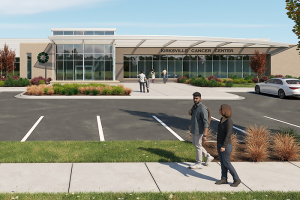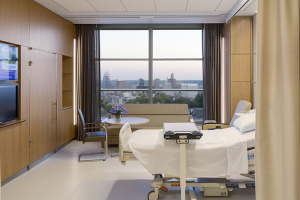Involving patients in the design process
The 2016 Hospital Construction Survey is underway, and this year we decided to ask about the ways in which patients influence health care design.
It's well-documented that patients are responsible for more of their health care costs, moving many of them into a consumer mindset. With that mindset, a more critical and discerning eye has developed as patients make sure they are getting the best value for their spend.
The trend has played itself out in a number of ways. Memorial Hermann, for instance, partnered with RediClinic to bring basic health care services to southeast Texas in the manner in which its patients prefer: quickly, as if running an everyday errand.
Design factors can boost patient satisfaction, too, and as a result of that satisfaction, patients can heal better and faster. Reducing noise levels in hospitals by using noise-reducing construction materials and ensuring that each patient room boasts scenic views of nature are simple concepts with proven benefits.
In "Designing for the health care consumer," Rob Chartier, vice president of Miron Construction Co. Inc. says, "Patient expectations have risen, and those expectations are contrasting with ever-tightening reimbursement models for health care administrators. How can we keep patients happy while still keeping costs in check?"
To answer that question, it seems that health care systems may want to turn to the very people they are serving by involving patients in the design of new facilities.
It's important that health systems speak with all stakeholders before breaking ground on a major construction project. However, while medical and other staff can offer input on designs that improve current workflows, it may be more difficult for them to step completely away from that framework and into the patients' shoes.
Also, different patients may want different things. A patient who goes in for a checkup may have distinctive needs from someone dealing with chronic illness. Or how about the family member who often stays overnight with a loved one? Perhaps all of their requests can be accommodated, or perhaps not; but it shouldn't hurt to ask.




